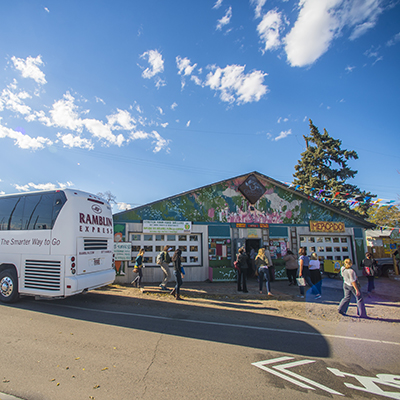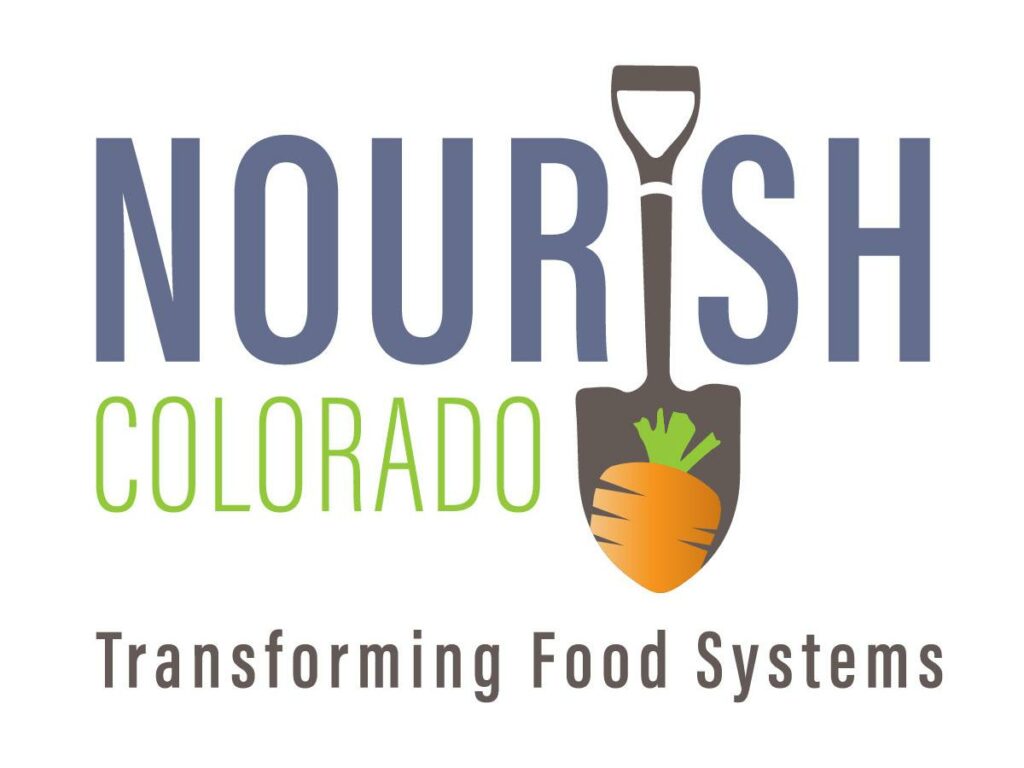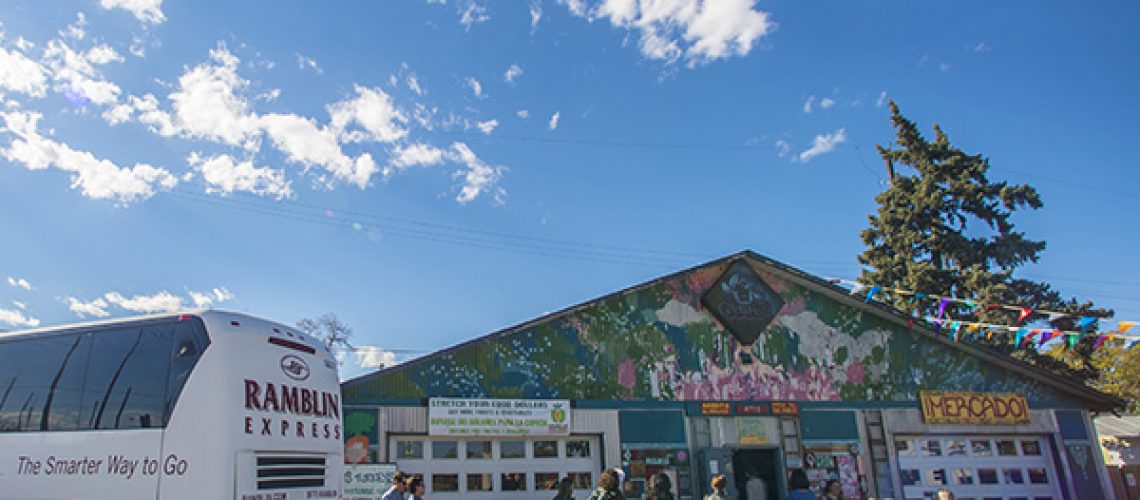LiveWell Shares Lessons Learned at American Public Health Association’s 2016 Conference in Denver

The American Public Health Association’s Annual Meeting and Expo was held October 29 through November 2 in Denver. The event brought together more than 12,000 public health professionals from across the U.S. and around the world to network, learn and share experiences. LiveWell Colorado was proud to play an active role at this year’s conference—including hosting a pre-event community tour of Denver’s food systems work, serving on a panel presentation on “Building a Strong Foundation for Community-Based Collaborative Sustainability,” and being represented in a partner’s presentation on LiveWell’s School Food Initiative.
APHA Community Tour of Denver Food Systems
“When the LiveWell Colorado team heard the APHA was having its annual conference in Denver, we saw ourselves as a ‘local host’ and knew we wanted to do something special,” says Wendy Peters Moschetti, LiveWell’s director of food systems and member of the APHA Food and Environment Working Group, which sponsored the event. “We thought a local bus tour would be a great way for attendees to come together and see some of the great food systems work going on here in Denver.”
Tickets for the bus tour sold out easily, with more than 60 public health professionals attending the pre-conference event on Saturday, October 29. The day-long tour included stops at Metro Caring, a leader and model for hunger prevention and food waste reduction for Denver and the nation; The GrowHaus, an interactive nonprofit urban farm, education center and marketplace in North Denver and a participant in LiveWell Colorado’s Double Up Food Bucks program where SNAP (Supplemental Nutrition Assistance Program, formerly food stamps) customers can stretch their food dollars at its on-site market and with its weekly Food Box program; the National Western Center, which is reinventing the National Western Complex into a global destination for agricultural heritage and innovation; and Comal Heritage Food Incubator, a multi-purpose shared space that offers open-to-the-public lunch service and cultural activities.
“Each place we visited showed a uniquely innovative, community-focused approach that’s really changing the face of how we do food access, hunger, and economic development work in Denver,” says Peters Moschetti. “Attendees were very engaged, and many commented on how impressed they were that so many organizations seem to be working together so well. The whole experience was really fun, and it also reminded me of the importance of working together with our partners to continue to support all the good work going on in Colorado’s food movement.”
Check out photos from the tour of The GrowHaus below:
LiveWell Colorado Presentation: Building a Strong Foundation for Community-Based Collaborative Sustainability
During the conference, Leslie Levine, MPH, LiveWell’s technical assistance and research manager, gave a presentation about how to make community strategies sustainable. “Communities in Colorado have been addressing obesity prevention in a comprehensive manner as early as 2004. Over the years, LiveWell has had time to study and assess what success looks like and the necessary elements to bring about that success,” Levine explained.
“What we’ve learned is that much of what prevents healthy behaviors in lower income communities has a lot to do with what people can or can’t access. We have to keep top of mind the more significant, deeply rooted issues of poverty, poor education, unsupportive physical environment, safety, unhealthy food options, and overall lack of resources,” she said, adding, “People face all kinds of issues that get in way of making healthy choices. We have learned that equity must be central to our work and that equity is about the opportunity to make the healthy choice.”
Levine went on to share LiveWell’s Theory of Impact, explaining that, “While success varies and looks very different by community, there are common trends—such as the value of community voice, improving the physical environment, and shifting to a culture of entrepreneurship—that lead to progress.”
Check out the full presentation below:
Presentation on LiveWell Colorado’s School Food Initiative: A Longitudinal Study to Assess Impact and Sustainability of a Scratch Cooking Intervention among 5 Colorado School Districts
Leah Carpenter of our partner organization, Gretchen Swanson Center for Nutrition, gave a presentation titled “A Longitudinal Study to Assess Impact and Sustainability of a Scratch Cooking Intervention among 5 Colorado School Districts,” which provided data and key learnings from a 3 year study that measured changes in scratch cooking. Overall, the study found that the use of fresh/whole ingredients increased overtime by 17% and participation stayed steady. Gabriella Warner, MS, RD, director of LiveWell’s School Food Initiative, was a contributing author on the presentation.
A related study, measuring the nutritional content changes associated with scratch cooking improvements in 9 districts, was published in the Journal of School Health in August 2016, titled “Evaluation of the LiveWell@School Food Initiative Shows Increases in Scratch Cooking and Improvement in Nutritional Content.”
Overall, the study found that “within a year of implementing LiveWell’s School Food Initiative, school districts increased the proportion of fresh, scratch-cooked foods they offered and this was associated with some decreases in calories, fat, saturated fat, and sodium, contributing to healthier school food environments.”
Check out the full presentation below:

